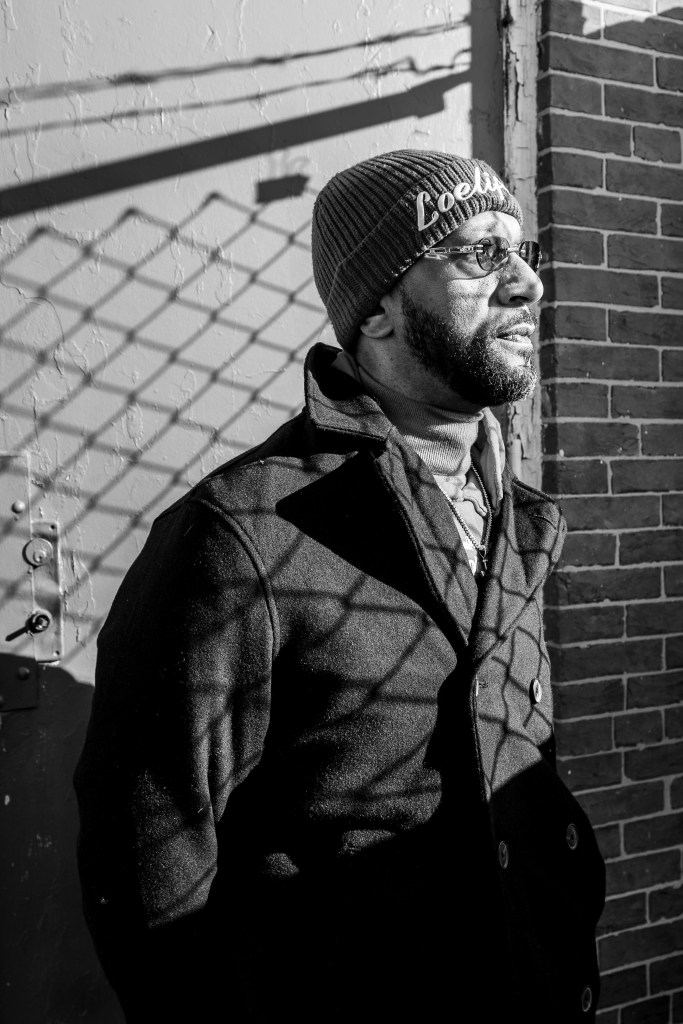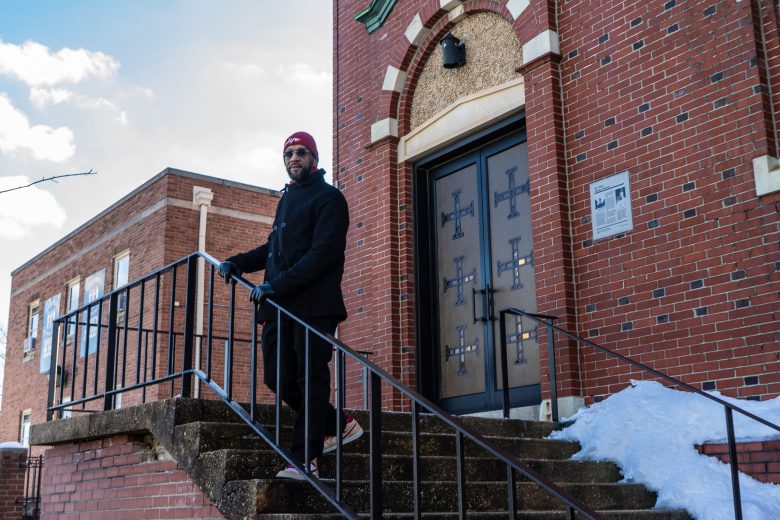After a decade-long campaign, Baltimore is one step closer to true accountability for its police force. Residents say the Baltimore Police Department has long used the shield of state control to act with impunity in the communities it’s sworn to serve and protect.
For the second time in two years, voters decisively approved a measure to return the Baltimore Police Department (BPD) to city control. With 77% of the vote, Question E marked the end of 160 years of BPD operating as a state agency. Voters passed a similar measure in 2022, but it was later deemed insufficient to transfer control, prompting advocates to bring the issue back to voters on the November ballot.
Now Baltimore’s elected leaders face the challenge of transforming a police force some residents view as a source of harm rather than protection.
For answers about what local control means in the fight for justice and police accountability, Baltimore Beat spoke with Ray Kelly, a key leader in the fight to return control of the Baltimore Police Department to city residents.
Kelly serves as the executive director of the Citizens Policing Project, which is part of The Campaign for Justice, Safety & Jobs. This coalition, comprising 20 grassroots, labor, and faith-based organizations — including the ACLU of Maryland, Jews United for Justice, and CASA de Maryland — successfully mobilized tens of thousands of city residents to support local control.
“Access to the Process of Reform”
Kelly says that the passage of Question E increases the power of Baltimore’s most impacted residents to advocate for justice and reform.
“What it creates is access to the process of reform,” Kelly explained. “Before, we had to navigate legislative sessions in Annapolis — a challenge for those who can’t take a day off work. Now, Baltimore residents can advocate directly to City Hall and City Council, which are closer to home. It’s about accountability to Baltimore, not 23 other counties that may never have even visited our city.”
This new dynamic, Kelly said, eliminates a longstanding barrier to enacting meaningful change.
“When the state controlled the BPD, decisions about policing were made by people who had little understanding of or connection to Baltimore’s realities. Now, the power is in our hands. But with this power comes responsibility — to build structures of oversight that work.”
“When the state controlled the BPD, decisions about policing were made by people who had little understanding of or connection to Baltimore’s realities. Now, the power is in our hands.”
Ray Kelly, executive director of the Citizens Policing Project
Kelly called on elected leaders to work in partnership with the community to build lasting change.
“The people who’ve been impacted the most by harmful policing practices need to be at the table. City leaders need to create processes that truly engage those voices, not just check a box.”
Accountability for an over half-billion dollar police budget
One of the most meaningful impacts of local control could be oversight of the Baltimore Police Department’s massive $593 million dollar budget. The Vera Institute ranked it among the highest per-capita police budgets in the country, outpacing city spending on social services like housing, healthcare, and education combined.
“In the past, the department could justify expenses with little scrutiny. Now, the city can decide how resources are allocated in ways that better serve the community,” Kelly said.
For example, the city could require police brutality settlements — which have cost taxpayers tens of millions of dollars in recent years — to come from the police budget. Officials could also require that the BPD justify excessive overtime spending. A recent state audit revealed that between January 2021 and June 2022, this cost taxpayers $66 million.
“Now, the City Council can oversee how that money is spent,” Kelly explained. “They can establish guidelines for procurement, vehicle maintenance, overtime, and more…the possibilities are endless.”

That could also free up more money for evidence-based programs such as community violence intervention, which uses trusted community members to mediate conflicts and mentor at-risk individuals, expanded mental health services, and housing initiatives. These approaches have long proven successful in addressing the root causes of violence while receiving a fraction of the resources of the BPD.
“Efforts like the Group Violence Reduction Strategy and investments in community resources are proving that we don’t need to criminalize poverty or trauma to improve public safety,” Kelly said. “These approaches are helping to break cycles of violence while building trust in communities that have historically been overpoliced and underserved.”
Meaningful Police Oversight
On December 31, 2024, the city disbanded the Civilian Review Board (CRB), claiming that legislation establishing local control had repealed the CRB’s authority to independently investigate allegations of police misconduct.
“The CRB was the only entity in the state with the authority to conduct independent investigations of police misconduct,” Kelly said. “But its scope was limited to a narrow set of complaints, like harassment and false imprisonment. In recent years, it was nearly defunct, with new members joining only this March.”
Despite its mandate, the CRB was long considered a toothless tiger. It could only recommend action to BPD, which typically ignored its findings. The city now says two existing bodies — the Police Accountability Board (PAB) and the Administrative Charging Committee (ACC) — will handle cases previously overseen by the CRB. However, it has not clarified whether these bodies will inherit the CRB’s authority to conduct independent investigations.
“The CRB’s powers should have been transferred to the PAB, but that process remains unclear,” Kelly said. “Without those powers, we risk losing meaningful oversight.”
Kelly also called for more robust mechanisms to address police misconduct comprehensively.
“The ACC, which handles complaints, must be empowered to investigate all forms of misconduct — not just the narrow categories the CRB covered. And we need to address the root causes of harmful policing practices to reduce the sheer volume of complaints — currently around 1,000 annually.”
“We need to address the root causes of harmful policing practices to reduce the sheer volume of complaints — currently around 1,000 annually.”
Ray Kelly, executive director of the Citizens Policing Project
He emphasized shifting the focus from processing complaints to preventing harm.
“We shouldn’t just ask how to handle 1,000 complaints a year,” he said. “We should be asking how to reduce that number to 500. True accountability means creating a police force that doesn’t harm the community in the first place.”
Kelly argued that the lack of an independent body that can hold police accountable remains a significant obstacle.
“We’re still stuck in compromises between the Mayor’s Office and the police department,” he said. “Until we have genuinely independent bodies overseeing police misconduct, real change will remain out of reach.”
Meanwhile, the BPD is seeking to end federal monitoring of the public’s ability to oversee the police department. This was a key area highlighted by a scathing 2016 Department of Justice report launched after the death of Freddie Gray in 2015. The investigation uncovered long-standing abuses that contributed to the Baltimore Uprising.
The BPD and federal monitors requested a judge declare the city in full compliance of its requirement to improve community oversight by addressing flaws in the existing community oversight and move toward establishing a true independent civilian oversight board.
But Kelly questions whether the federal monitor accomplished enough.
“Officers don’t face consequences for noncompliance with the consent decree, and there’s still no trust between the community and the police.”
A Personal Victory
For Kelly, who has spent over a decade advocating for local control, the passage of Question E is deeply personal.
“I didn’t come into this with a criminal justice degree — I came as someone from the community. It’s been a long struggle to get our voices recognized,” Kelly said.
Gaining local control, he explained, underscores the importance of centering the voices of impacted communities. “This victory is about recognizing and elevating voices from communities that have borne the brunt of police misconduct. It’s the culmination of 12 years of work. But it’s not the end of the fight — it’s the beginning of a new chapter.”
“Local control gives us the tools to make real change, but it’s up to us to use them effectively. The people of Baltimore need to stay engaged and hold our leaders accountable.”
Ray Kelly, executive director of the Citizens Policing Project
Kelly remains optimistic but cautious about the road ahead. “Local control gives us the tools to make real change, but it’s up to us to use them effectively. The people of Baltimore need to stay engaged and hold our leaders accountable.”
“This isn’t just about policies or budgets — it’s about changing how we view public safety and rebuilding trust between the police and the people they serve.”

